2021 in Review: Favorites from Years Prior
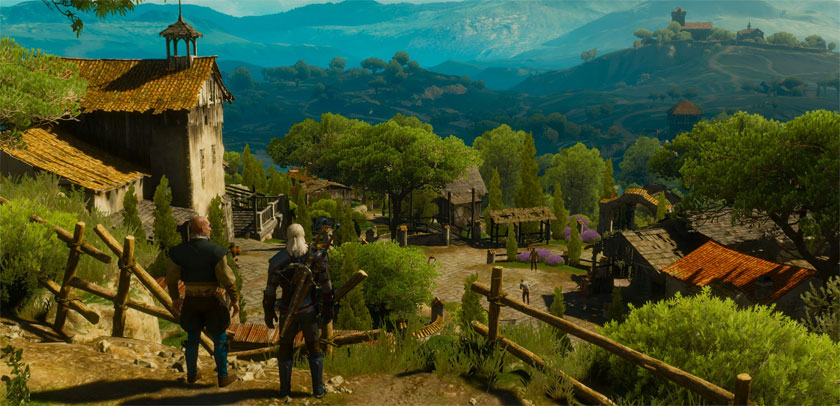
Everyone has highly acclaimed titles that they never got around to playing at release, or prior purchases just sitting on their hard drives and bookshelves gathering dust. No one is able to play every game of interest that crosses their path, and they are often unaware of certain titles that may be up their alley until word of mouth hits them months or years later. Then come the recommendations of friends and compatriots both in person and on the Internet, demanding an interruption in one’s schedule to play this latest game that will surely blow their minds away.
Just as I’ve made it a point to replay games I’m familiar with, I also try to go back and play games that I once missed. Oftentimes this is a better choice than to play the latest releases; rather than get stuck with something that’s okay but brand new, I might find myself deeply enveloped in a game that’s fantastic though older. This was especially true the prior year when my favorite game turned out to be Bloodborne, a title five years old by the time I finally played it.
None of the previously released titles I played in 2021 made quite as strong of an impression, but several of them were notable nonetheless. As such, I wanted to spend some time discussing them before I detailed my remaining favorites of the past year. Of course, since I’ve already written about some of these games, this will also turn into a bit of a look back at my essays of 2021 as well.
I say this because the first game I wish to bring up is Resident Evil VII, a title which I’ve remarked as being mostly great already. Despite being overshadowed by my enjoyment of its sequel Resident Evil Village, the tale of bayou terror never left my mind even as the pages of the calendar continued to turn. The secret to the best Resident Evil games is the desire to go back and optimize your path through the horrifying and threatening world. This was true in the first title and its remake in regards to improving one’s route and mastery of the Spencer Mansion, and would be further encouraged in the remake of its sequel, Resident Evil 2, by adding the intimidating presence of Mr. X to the Raccoon City Police Department. Not only would a player’s knowledge of the location be tested, but they’d need to adapt at a moment’s notice to the possible closing off of a pathway by the lumbering, purpose-driven killing machine. Resident Evil 4 would shift over to combat mastery rather than world-mastery, whose weapon upgrades would roll over from one playthrough to another and encourage the player to return repeatedly for further unlocks and improved tactics. There was still an environmental mastery, but it was locked to the combat arena rather than an entire building.
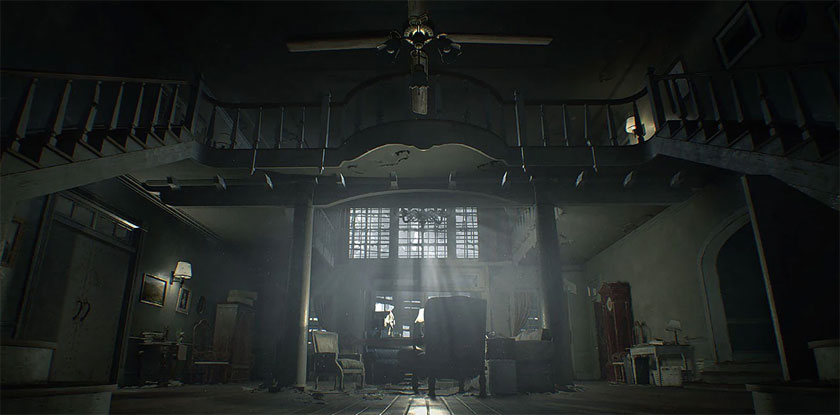
It is no surprise, then, that Resident Evil VII continues to beckon me back. I wish to take on the Baker family once again on their turf, increasing the difficulty level and testing what options are available in certain sections of the game while also learning the most optimal path through their residence. The only reason I keep waffling on whether I actually play again or not is my indecision or uncertainty as to whether I’ll be returning to the game for other analytical purposes in the future.
That, and my documented dislike of the moulded enemy type. Though Resident Evil Village has many lows, and they, too, owe to the subpar execution of the combat mechanics, Village manages to vary its gameplay experience and combat encounters enough to remain a wholly solid experience. The concluding stretch of Resident Evil VII is simply too much combat without much challenge against very bland enemies.
Nonetheless, Resident Evil VII is one of the reasons I’m convinced that Capcom is at their best right now.
I cannot say the same for CD Projekt Red, developers of the highly acclaimed The Witcher 3. I already beat up on the game enough for immersion that breaks immersion and its writing intent and verisimilitude contradicting its game design. However, I cannot deny that I still think back positively on the experience as a whole.
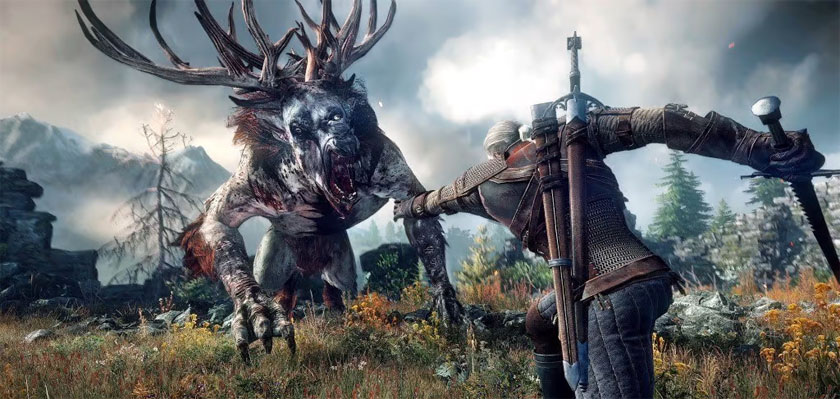
What has perhaps stuck closest is the scene in which Geralt and his fellow Witchers gather for a night of drinking. The evening swiftly dissolves into excess, emotional outbursts, and an all too familiar outpouring of bad ideas that indicate it is time for bed. There are many games celebrated for their writing, but so few present such a real and sincere moment as that character-focused night of drunk Witchers.
While I may not have been as taken by the game’s writing as many others, I also cannot muster the contrarian energy to claim it is undeserved. CD Projekt Red certainly had accomplished much with the game, and if you were to ask me if it or Dragon Age: Origins were the better game, I’d select The Witcher 3 without hesitation. At the same time, if you were to ask if I wanted to play The Witcher 3 or Dragon’s Dogma over again, I’d choose the latter simply because the actual combat was far more enjoyable. The Witcher 3 can be flashy and cinematic at times, but in the end it never felt that satisfying in its monster hunts or skirmishes against bandits. Like many RPG’s, it also came down to skill far less than it did the quality of your equipment and level of your spells. I don’t want to sound as if I don’t understand the purpose of a role-playing game, but my preference is that an action game lean more heavily on skill than number crunching. If your emphasis is stat and gear manipulation, then I would prefer a more strategic combat design, such as a turn-based or grid-based combat system.
Regardless, I occasionally think about The Witcher 3, and I actually hope to get to its predecessors just so that I might spend more time in that world and see where CD Projekt Red began.
The other large game I had played earlier this year was Xenoblade Chronicles: Definitive Edition, marking the third time I would purchase the title for as many systems and the fourth time I had started my adventure anew. You’d think being unable to complete a game so often would indicate a lack of enjoyment, but it was always the length of the game that kept me from returning. Little did I know it wasn’t actually one hundred hours long as many claimed – so long as you’re not aiming to complete absolutely everything – and that I had made far more progress in my first time through than I had anticipated.
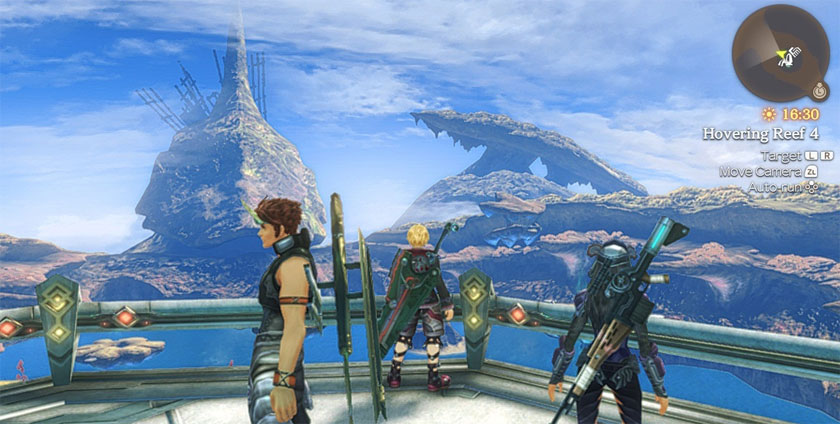
Nonetheless, the early hours of Xenoblade Chronicles: Definitive Edition are by far the most interesting. Though aspects of the opening feel fairly generic as the home of a young group of teenagers is invaded by an overwhelming force of evil, it is the tragedy that they face and their attitude towards it that allows the game to feel somewhat different than one might anticipate. It feels potentially subversive to expectations, and the many plot twists that follow build on a mystery as to who the adversary truly is.
It is approximately the halfway point that any indication of subversion passes on by. It is also around halfway through that any potential experimentation with different party members seems simultaneously encouraged and discouraged. Your base trio of characters are unfortunately greatly effective, providing any combat role you could possibly need and synchronizing their attacks almost perfectly. While other characters serve similar roles, they are more “advanced”, so to speak: they are not as immediately useful when combined as your early trio, and much grinding is required if you wish to advance bond levels and other shared skills to be anywhere near as advantageous. As such, the game never became bad or dull, but it lost much of the momentum that drove its earlier hours through a loss of new combat features. You could either have a harder time with a B or C team, or you could just swap back to your A team and continue the same strategies you’ve been performing the whole game. It was a fine title to finally go back and finish, but ultimately it has proven far more forgettable as a whole than its opening hours served in isolation.
The greatest letdown I shall be discussing is Daemon X Machina, a title which I had played on stream this autumn. I had played the demo back in 2017 when it launched on the Nintendo Switch, but was unable to fit the game into my budget or schedule against releases like Fire Emblem: Three Houses and Astral Chain that year. Though the introductory missions of the demo were fine, I really became interested in the game when I fought one of its giant colossal boss mechs. By the time I got around to playing the game on PC, I found that such engaging battles were certainly the highlights of the final product, but were also uncommon. The remaining missions were otherwise bog standard and repetitive, with very little environmental or objective variation, let alone proper challenge.
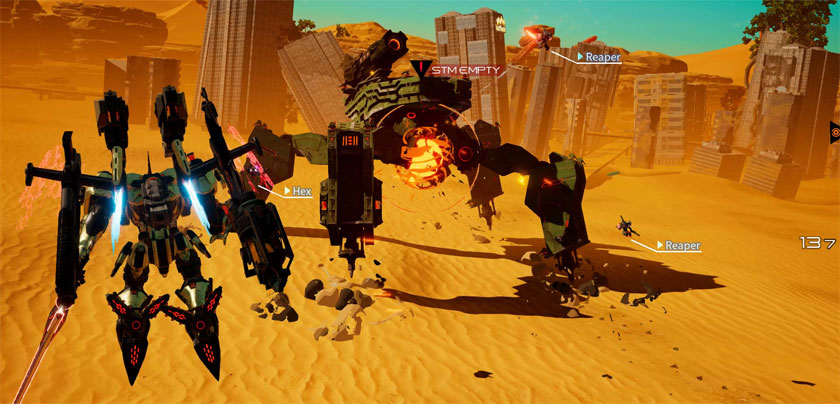
It’s a shame, because it has a great visual aesthetic with wonderful cel-shading of Shoji Kawamori mecha designs. However, the large number of missions available were often too easy, too numerous, and had very little differentiation between them. A shorter game with a greater focus on set piece encounters like the larger bosses would have made for a more interesting experience, and perhaps even allowed a bit more room for polish and experimentation by focusing on a shorter or smaller campaign scope.
Perhaps the greatest detriment was the sheer volume of characters and verbose dialogue. The plot was ultimately nonsense, and I spent half the game hoping for characters to begin dying off just so that something interesting might happen – and that some of them would finally stop talking. Looking back, I’m not even sure I know what happened in the game’s narrative, and while I look forward to seeing what the sequel in development might look like, I’m more concerned that it will only increase the sheer volume of mediocre content rather than trimming the fat and focusing more on the core title’s strengths.
Which leads me to A.I. The Somnium Files, a Spike Chunsoft title written and directed by Kotaro Uchikoshi, creator of the Zero Escape series. If you want a director that trims the fat and improves upon the strengths of his prior titles, then A.I. The Somnium Files does each of those things. While it is still full of digressions into a variety of odd topics and dabbles in the absurd, it almost relies on prior knowledge of Uchikoshi’s past games in order to mislead and misdirect the player into certain assumptions. In the end, it is perhaps his most grounded game, though most importantly the game with the most heart.
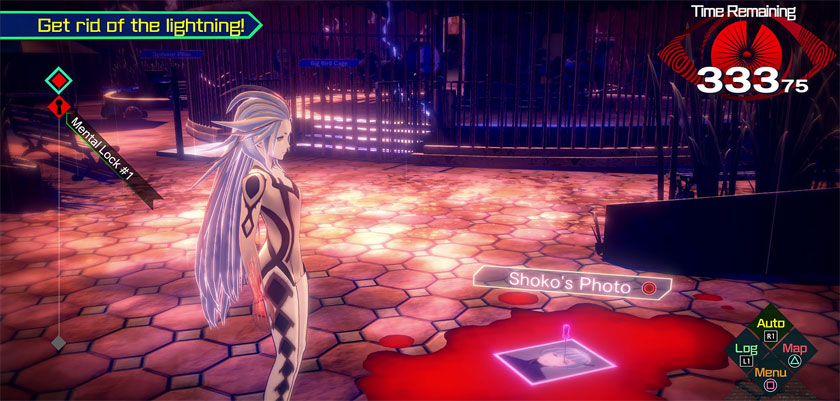
I had already discussed this title quite a bit on the podcast with my friend Issuna, but I don’t think we managed to stress enough that the strength of this game is the relationships between its characters. While there have always been several characters with personal connections in the Zero Escape series, they aren’t as tightly knit together as you see here in A.I. The Somnium Files. As a result, certain story routes, revelations, and set pieces simply hit harder because you not only care about the characters, but what these events mean to their past, present, and potential future.
Yet the real strength of the game is in its dream-based puzzles. Flexing his escape room style of puzzle design, Kotaru Uchikoshi now leads players through nonsensical dreamscapes that are capable of latching onto the more obtuse and abstract irrationality of one’s nightmares and subconscious memories, developing far more inventive and atmospheric puzzles whose solutions often double as narrative devices. These dreams are often where the player can determine which route to travel, but can also mislead and misdirect in ways that will leave the player trying to predict what sort of truth lies behind the mystery.
Without a doubt, A.I. The Somnium Files has further confirmed my interest in Spike Chunsoft as a developer and publisher, and any trailer that opens with their logo immediately has my interest. This is certainly one of my favorite releases of the year, and further confirms my enjoyment of well crafted Japanese visual novels.
Tokyo Dark: Remembrance was another such title I chose to explore, tackling some of the lower-budget and lesser known entries in the genre. Of course, Tokyo Dark may lean closer to a traditional adventure game, a sort of combination of two already similar genres separated by an ocean and culture. While there is a singular rail-roaded plot to progress down, how the player responds to certain events and how select choices will impact the game’s final concluding hours are the real selling point here.
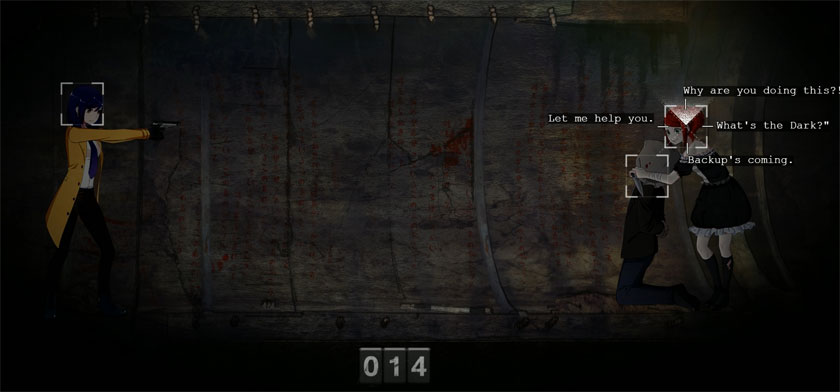
The only flaw with Tokyo Dark is the need for at least two playthroughs in order to get the “true” or “best” ending, without enough differentiation in certain routes to justify an immediate return to the title. I had attempted to jump in and work on different choices, but knowing the opposite choices of what I’d already done would only prevent me from getting the “best” conclusion, I was unable to find much enjoyment in an immediate second run through.
Nonetheless, I want to go back sometime and see the true ending. Though bleak, disturbing, and somewhat depressing of a game to be in, Tokyo Dark was certainly a surprise to kick the year off with. Ironic, seeing as the year ultimately turned out far more pleasant for me than the prior, and therefore was juxtaposed to the tone the rest of the year would otherwise take.
On the whole, once you factor the ‘vania games I played into the mixture as well, I played a lot of decent games of prior years in 2021. I aim to keep the trend going in 2022, as I’m already progressing through Symphony of the Night and have titles such as 13 Sentinels: Aegis Rim on the docket to play. I aim to do a better job of keeping these games recorded on the blog as the year goes by as well, but I try to stick to that resolution every year, so no promises.
At any rate, we’ll be continuing our look back at 2021 this week with the finest releases I played this year (that haven’t already been discussed), concluding with my favorite release getting its own dedicated entry. In the meantime, if you’re curious what I (and Steve!) are most excited for coming up in 2022, then be sure to check out the latest Eh! Steve! where we discuss that very subject.


